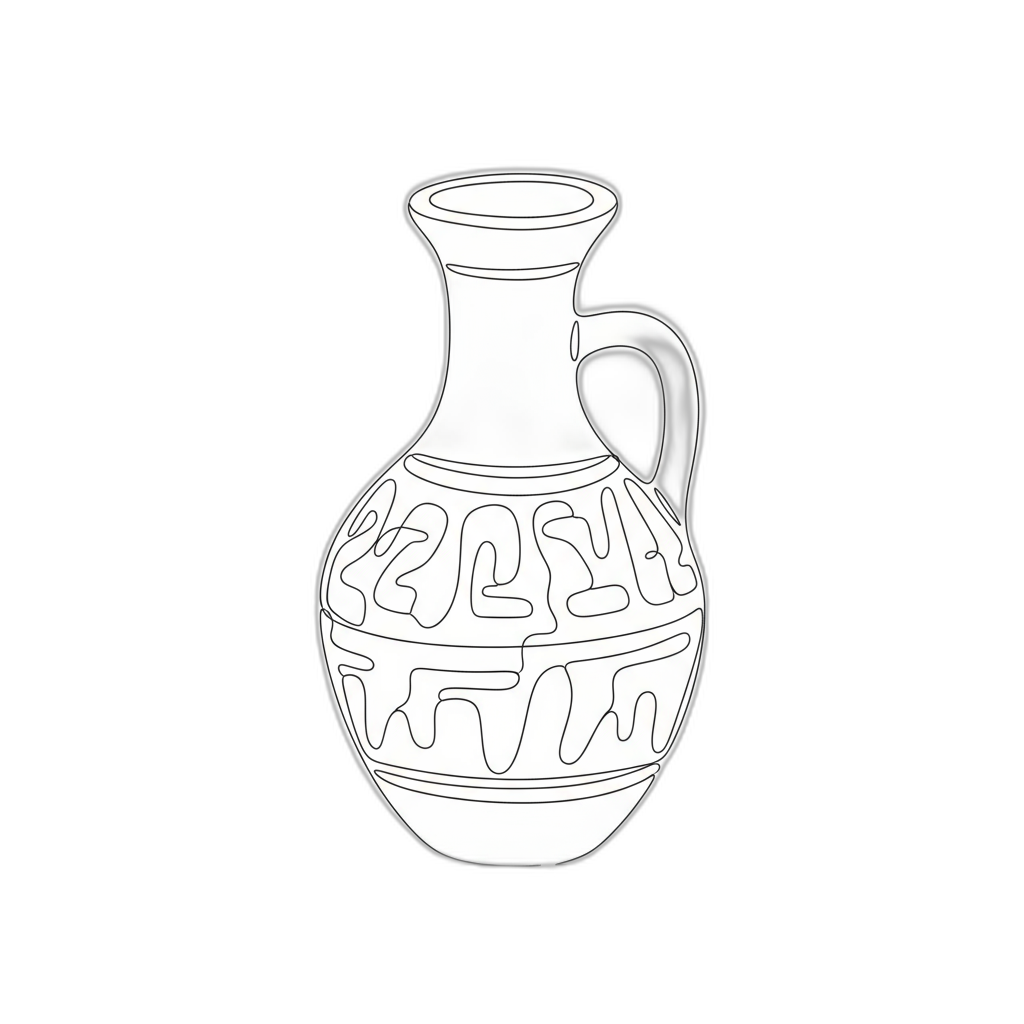






5-Star Service, Trusted & Loved by Hundreds
Your Appraiser Search Ends Here
Your Appraiser Search Ends Here
.avif)

Nationwide Coverage – Appraisals Anywhere in the US

Get it done Onsite or Online

Any Asset, Covered

Defensible for Any Purpose
Frequently Asked
Questions
No Frequently Asked Questions Found.
The fundamental objective of estate planning goes beyond simply drafting documents. It involves creating a holistic strategy that protects financial interests, provides for loved ones, and addresses potential future scenarios. By carefully considering various legal instruments and personal circumstances, individuals can develop a robust plan that reflects their unique goals and family dynamics.
Key components of a comprehensive estate plan include wills, which define asset distribution and guardianship preferences; trusts, which offer flexible asset management and potential tax advantages; powers of attorney that enable trusted representatives to make critical decisions during incapacitation; and healthcare directives that articulate medical treatment preferences.
While often misconceived as a strategy exclusively for wealthy individuals, estate planning is valuable for people across all financial spectrums. The process helps mitigate potential tax implications, prevents default legal distributions through intestacy laws, and provides families with clarity during challenging transitions.
Effective estate planning requires periodic review and adaptation. Life changes such as marriages, divorces, births, significant financial shifts, or changes in family dynamics necessitate plan updates. This ongoing refinement ensures that the estate plan remains aligned with current personal circumstances and evolving objectives.
By approaching estate planning proactively and comprehensively, individuals can create a structured framework that offers peace of mind, financial protection, and a clear legacy for future generations.
Professional appraisals deliver precise, current market values for diverse assets including real estate, personal property, collectibles, and investment portfolios. This objective evaluation ensures accurate representation of your total estate value, which becomes fundamental for multiple legal and financial considerations.
Accurate valuations directly impact critical estate planning elements like tax liability calculations, potential inheritance distributions, and legal documentation integrity. By establishing a clear, defensible record of asset worth, you create a transparent framework that minimizes potential conflicts among heirs and provides definitive guidance for asset transfer.
Tax implications represent another crucial dimension where professional appraisals prove invaluable. Precise asset valuations help optimize tax strategies, potentially reducing estate tax burdens and ensuring that your beneficiaries receive maximum financial benefit from your accumulated wealth.
Estate liquidity becomes more manageable through comprehensive appraisals, especially when dealing with complex or illiquid assets like unique real estate, specialized collections, or business interests. These evaluations help executors understand potential financial requirements during estate settlement processes.
Beyond financial considerations, professional appraisals also support broader estate planning objectives. They provide legal documentation that can withstand potential probate challenges, create clear guidelines for asset distribution, and demonstrate thoughtful, responsible financial stewardship.
For individuals with charitable giving intentions, accurate appraisals become essential in determining contribution values and meeting organizational requirements while maximizing potential tax benefits.
Ultimately, a professional appraisal represents an investment in financial clarity, family harmony, and legacy preservation—transforming complex asset management into a structured, transparent process that honors your life's work and protects your loved ones' future.
An artwork appraisal represents a comprehensive professional evaluation that precisely determines the monetary and historical value of an art piece. This meticulous process involves expert assessment of multiple intricate factors that collectively influence an artwork's market worth and significance.
Professional art appraisers employ a sophisticated methodology that examines critical elements such as the artwork's provenance, authenticity, physical condition, current market dynamics, and the artist's reputation. Each of these components plays a crucial role in establishing an accurate and defensible valuation.
The evaluation goes far beyond a simple price assessment. Appraisers conduct detailed investigations that may include forensic analysis of materials, historical research into the artwork's origins, and careful examination of minute details that can substantiate or challenge the piece's perceived value. They leverage extensive knowledge of artistic styles, market trends, and collector interests to provide a nuanced understanding of an artwork's worth.
Different stakeholders rely on artwork appraisals for diverse purposes, including insurance documentation, estate planning, potential sale transactions, and tax compliance. The appraisal serves as an authoritative document that provides clarity and confidence for collectors, institutions, and potential buyers.
The complexity of art valuation requires a sophisticated approach that balances objective analysis with deep understanding of artistic and market contexts. A comprehensive appraisal not only quantifies monetary value but also captures the intrinsic cultural and historical significance of the artwork.
Online artwork appraisals have become increasingly sophisticated, offering art owners a convenient and comprehensive method to determine the value of their pieces. The process typically begins with submitting high-resolution photographs that capture essential details of the artwork. Professional appraisers carefully analyze these images, examining critical aspects such as condition, artistic technique, and distinctive characteristics.
Beyond visual documentation, appraisers collect contextual information through digital communication channels. Owners provide supplemental details about the artwork's provenance, artist background, and historical significance, which help create a more nuanced valuation. This collaborative approach allows for a thorough assessment without the constraints of physical proximity.
Live video consultations have emerged as an innovative component of online art appraisals. Using platforms like Zoom or Google Meet, appraisers can engage directly with clients, rotating artwork, examining specific details, and conducting real-time discussions. This interactive method bridges the gap between digital and in-person assessment, enabling a more dynamic and comprehensive evaluation.
The digital appraisal process offers substantial benefits, including accessibility for individuals in remote locations, flexibility for busy clients, and reduced logistical complexities. Professional appraisers maintain rigorous standards, ensuring that online evaluations are as meticulous and credible as traditional in-person assessments.
Modern technology has transformed artwork appraisals, creating a streamlined, efficient approach that meets the evolving needs of art collectors and owners. By leveraging digital tools and professional expertise, online appraisals provide accurate, comprehensive valuations with unprecedented convenience.
Artwork appraisers are specialized professionals who meticulously assess the value of diverse art forms. Their expertise spans multiple domains, each requiring unique skills and deep knowledge of artistic markets, historical context, and aesthetic evaluation.
Fine art appraisers concentrate on traditional art mediums like paintings, sculptures, and drawings. These experts possess comprehensive understanding of art movements and market dynamics, often developing profound specialization in specific periods such as Impressionism or Contemporary art.
Decorative art appraisers evaluate functional artistic items including furniture, ceramics, glassware, and textiles. Their assessments consider craftsmanship, material quality, historical significance, and provenance, making them invaluable to collectors and antique dealers seeking precise valuations.
Digital art appraisers represent an emerging professional category addressing the rapidly evolving technological art landscape. They specialize in evaluating digital creations, graphic designs, digital paintings, and emerging formats like NFTs, reflecting the dynamic nature of contemporary artistic expression.
Antique appraisers focus on artworks exceeding 100 years in age, conducting thorough examinations that extend beyond aesthetic value. They scrutinize historical importance, authenticity, and originality, distinguishing genuine historical pieces from reproductions and potential forgeries.
Specialty appraisers develop expertise in distinct artistic niches, concentrating on specific artists, regional styles, or unique media such as photography or limited edition prints. Their targeted knowledge enables nuanced, precise valuations within specialized artistic domains.
Institutional appraisers employed by museums, galleries, and cultural organizations perform critical valuation services for collections, exhibitions, and acquisitions. Operating under rigorous ethical standards, they provide essential assessments for insurance, donation, estate planning, and cultural preservation purposes.
Artworks transcend mere visual appeal, representing significant financial and emotional investments. Professional appraisals provide critical insights that extend far beyond simple price determination, serving multiple strategic purposes for art owners.
Insurance protection stands as a primary motivation for artwork appraisals. Without accurate documentation, collectors risk inadequate compensation during loss, theft, or damage scenarios. Precise valuations enable insurance companies to establish appropriate coverage, ensuring financial security for valuable pieces.
Estate planning represents another crucial context for art appraisals. When transferring assets between generations, comprehensive valuations help establish fair market values, potentially mitigating potential tax complications and familial disputes. Executors and heirs gain clarity about the financial landscape of inherited artwork collections.
Charitable donations also benefit from professional appraisals. For artwork valued over specific thresholds, formal assessments become essential for claiming tax deductions. These documentations provide nonprofits with transparent understanding of donated asset values while offering potential tax advantages to donors.
Preparing for potential sales requires nuanced market understanding. Appraisals illuminate current market trends, helping owners set competitive pricing strategies. Whether considering auction placement or private sale, comprehensive evaluations empower informed decision-making.
Investment portfolios increasingly recognize art as a valuable asset class. Professional appraisals help collectors assess artwork's financial potential, tracking appreciation and understanding long-term value trajectories. These insights support sophisticated wealth management approaches.
Authenticity verification represents an often-overlooked yet critical appraisal benefit. Reputable assessments not only determine monetary value but also confirm artwork provenance, protecting collectors from potential fraud and enhancing piece legitimacy.
Ultimately, artwork appraisals represent more than financial transactions—they are comprehensive explorations of cultural, historical, and monetary significance. By bridging emotional attachment and strategic financial planning, professional evaluations offer collectors comprehensive perspectives on their artistic investments.
Understanding the Importance of Artwork Appraisals in Estate Planning
Artwork appraisals play a crucial role in estate planning, particularly for individuals holding valuable collections. These professional evaluations assess the fair market value of artworks, which is essential for determining overall estate worth, facilitating tax calculations, and ensuring proper distribution among heirs. Accurate appraisals help mitigate disputes that may arise during the inheritance process, making it easier to manage the transition of such intangible assets.
Additionally, having a professional appraisal of your artwork can lead to informed decision-making regarding insurance coverage. Many collectors may not realize that their pieces hold significantly more value than presumed, which could leave them underinsured in the event of loss or damage. By securing a proper appraisal, you ensure that your artwork is adequately covered, safeguarding your investment and providing peace of mind to both you and your family.
Moreover, in cases of potential estate tax implications or charitable donations, an appraisal becomes indispensable. This formal valuation establishes a documented proof of worth, which can be critical during tax assessments or when applying for tax deductions. Therefore, engaging an expert appraiser not only preserves the integrity of your estate but also provides financial advantages that can benefit your heirs in the long term.
What is an Artwork Appraisal?
An artwork appraisal is a thorough examination and evaluation of a piece of art to determine its fair market value and authenticity. This process typically involves analyzing the artist's reputation, the age and condition of the artwork, and any relevant market trends. Appraisers often consider provenance, or the history of ownership, as it can significantly influence an artwork's value. Such appraisals are essential in estate planning, ensuring that the artwork is correctly represented for financial assessments and tax obligations.
In the context of estate planning, artwork appraisals are crucial for several reasons. Accurate valuations help in the equitable distribution of assets among heirs and can also assist in calculating estate taxes. Additionally, a well-documented appraisal can protect against disputes among beneficiaries by establishing a clear understanding of an artwork's value. Given the subjective nature of art, engaging a qualified appraiser with expertise in the specific genre can provide a much-needed objective perspective.
Key Factors Affecting Artwork Value
The value of artwork is influenced by several key factors that collectors and estate planners should consider. Firstly, the artist's reputation plays a significant role; pieces by well-known artists, particularly those who are historically significant or currently trending, tend to fetch higher prices. Additionally, the artwork's provenance—its ownership history and documentation—can greatly enhance its appeal, proving its legitimacy and sometimes even its rarity. Lastly, the condition of the artwork is crucial; any signs of damage or restoration can adversely affect its market value.
Furthermore, market demand is a dynamic element that can fluctuate based on current trends and economic conditions. Art movements and styles gain or lose popularity over time, which directly impacts the desirability of specific pieces. The medium used, whether it's oil, watercolor, sculpture, or mixed media, also contributes to its market perception and value. Understanding these factors helps in accurately appraising artwork for estate planning, ensuring that both the valued pieces and the legacy they represent are effectively accounted for.
Types of Artwork Eligible for Appraisal
When it comes to artwork appraisals for estate planning, a wide variety of art forms can be eligible for assessment. This includes paintings, sculptures, prints, and photographs, each requiring specific expertise to accurately determine their value. Fine art, such as oil paintings or watercolors from recognized artists, usually dominates the appraisal landscape, but decorative art, folk art, and contemporary pieces also hold significant value and deserve appraisal consideration. Furthermore, items like collectibles, limited edition prints, and even art memorabilia can be assessed to ensure a comprehensive evaluation of an estate's worth.
The process of appraising artwork can be nuanced, as different types of art may be influenced by diverse factors, including provenance, condition, and market demand. Collectors should consider both the artistic elements and the historical context in which the piece was created. Additionally, emerging artists or works that fall under niche categories may require specialized appraisers who have a deep understanding of those specific areas. By ensuring that all types of artwork are considered, individuals can establish a well-rounded valuation that accurately reflects their estate's true worth.
The Appraisal Process: What to Expect
The appraisal process for artwork begins with a thorough evaluation conducted by a qualified appraiser who specializes in art valuation. This expert will assess the piece’s authenticity, provenance, condition, and market demand. Depending on the specific requirements of the estate plan, appraisers may provide a detailed written report that includes photographs and a comparative market analysis to determine the artwork's fair market value. This process often involves extensive research and communication with galleries, auction houses, and previous owners to ensure the valuation is as accurate as possible.
Once the appraisal report is completed, it serves several critical purposes for estate planning. It can aid in the equitable distribution of assets among heirs, facilitate tax assessments, and help determine appropriate insurance coverage. Additionally, having a well-documented appraisal can protect the estate against potential disputes over the artwork’s value. Therefore, engaging a professional appraiser is essential to ensure that the artwork is accurately valued and properly documented, providing peace of mind and clarity in the estate planning process.
Selecting a Qualified Appraiser
Selecting a qualified appraiser is crucial for ensuring an accurate valuation of artwork for estate planning purposes. Look for appraisers who have specific credentials, such as being members of recognized professional organizations that enforce ethical standards and require ongoing education. These organizations often provide resources that help consumers verify an appraiser’s qualifications and track record, making it easier to make informed decisions.
Experience in the specific type of artwork being appraised is also an important consideration. Different art forms—whether paintings, sculptures, or antique collectibles—come with their own unique market dynamics and valuation criteria. An appraiser with a specialized focus and a deep understanding of the nuances within the art market will be better equipped to provide a precise evaluation that accurately reflects current market trends.
Finally, it's essential to review the appraiser’s previous work and client feedback. This can include examining sample appraisal reports and seeking out testimonials from past clients. A reputable appraiser should be transparent about their methodology and willing to answer any questions you have, ensuring that you feel confident in their expertise and the value they provide in the estate planning process.
Documentation Needed for Artwork Appraisals
When preparing for an artwork appraisal, having the right documentation is crucial to ensure an accurate valuation. Essential documents typically include proof of ownership, such as invoices, receipts, or previous appraisals, which establish the provenance of the piece. Additionally, any prior exhibition catalogs or gallery representations can provide context and enhance the value by illustrating the artwork's history and significance in the art world.
Photographs of the artwork from various angles are also important to presenting its physical condition and details, such as size, material, and any distinguishing marks or features. This visual documentation can significantly aid appraisers in their assessment process. Moreover, any relevant documentation regarding alterations, restorations, or repairs will help convey the current state of the artwork, potentially impacting its valuation.
Lastly, artists' biographical information, including exhibition history, awards, and references in publications, can be invaluable for appraisers to understand market demand and historical context. Keeping a comprehensive file on the artwork, including all of these documents, not only streamlines the appraisal process but also adds credibility to the appraisal report. By providing thorough and well-organized documentation, clients can foster trust in the appraisal's findings and ensure that their artwork is valued appropriately for estate planning purposes.
The Role of Appraisals in Tax Considerations
When it comes to estate planning, understanding the role of appraisals is crucial, especially in relation to tax considerations. Artwork, being a significant asset for many estates, requires an accurate valuation to ensure that any taxes owed are based on informed assessments. A qualified appraiser evaluates the artwork not only for its market value but also considers factors that can affect its worth, such as provenance, condition, and current market trends. This professional appraisal provides a foundation for calculating potential estate taxes and can influence the overall financial strategy of the estate.
Additionally, accurate artwork appraisals can prevent potential disputes with tax authorities and help to maximize the valuation of the estate when it comes to inheritance or estate taxes. Without an up-to-date and precise appraisal, heirs could face unexpected tax liabilities or penalties, leading to financial strain. Having a clear understanding of the artwork's worth, documented through a professional appraisal, ensures compliance with applicable tax laws and can provide peace of mind for both the estate and the beneficiaries.
Marking the Value: Fair Market Value vs. Insurance Value
When it comes to artwork appraisals, understanding the distinction between fair market value and insurance value is crucial for effective estate planning. Fair market value refers to the price a willing buyer would pay a willing seller in an open market, considering factors like current market trends, the artist's credentials, and the artwork's condition. This value is often assessed through comparative market analysis, which evaluates similar pieces that have recently sold. Accurate determination of fair market value is essential for tax purposes, as it informs potential capital gains liability upon the transfer of assets.
In contrast, the insurance value is primarily focused on the replacement cost of the artwork, representing the financial amount needed to replace the piece in the event of loss or damage. Unlike fair market value, which fluctuates based on market conditions, insurance value is generally assessed with a more conservative approach, considering the cost of acquiring a similar artwork at current prices. It is important for individuals to have a thorough appraisal to ensure their collections are adequately insured, protecting their investments while providing peace of mind within the framework of estate planning.
Common Mistakes to Avoid in Artwork Appraisals
When it comes to artwork appraisals, one of the most common mistakes is undervaluing or overvaluing pieces based on personal bias or emotional attachment. Collectors often have a strong connection to their artwork, which can cloud their judgment regarding its market value. It is crucial to engage a qualified appraiser who can provide an objective assessment based on current market trends and comparable sales, rather than sentimental value.
Another pitfall is failing to document and provide adequate provenance for the artwork being appraised. Provenance—the history of ownership and authenticity of a piece—plays a vital role in determining its value. Without proper documentation, such as receipts, previous appraisals, or certificates of authenticity, the appraisal process can be compromised, leading to a potentially inaccurate valuation.
Lastly, many individuals overlook the importance of periodically updating artwork appraisals. The art market is constantly evolving, and values can fluctuate significantly due to trends, economic changes, or new market players entering the scene. Regularly revisiting appraisals ensures that the financial and estate planning considerations remain accurate and relevant, allowing for informed decision-making regarding the collection.
How Often Should Artwork Be Appraised?
Artwork appraisals should not be a one-time event; regular assessments are essential for maintaining an accurate understanding of an artwork’s value, particularly for estate planning purposes. Generally, it is advisable to have artwork appraised every 3 to 5 years, although more frequent evaluations may be warranted if the art market is experiencing significant fluctuations. Factors such as changes in an artist’s reputation, market trends, and tax regulations can influence the value of your artwork, making timely appraisals crucial for estate planning.
In addition to the standard appraisal interval, certain life events may trigger the need for an updated valuation. Significant changes such as a major acquisition or sale, inheritance, or the decision to donate artwork to a charity can all merit a new appraisal. By maintaining updated appraisals, individuals can ensure that their estate accurately reflects the value of their assets, aiding in effective financial planning and minimizing potential disputes among heirs.
Final Thoughts on Artwork Appraisals for Estate Planning
Artwork appraisals play a crucial role in estate planning, as they provide an accurate assessment of the value of your art collection. Understanding the value of these assets is essential for tax purposes, equitable distribution among heirs, and identifying potential capital gains tax liabilities. Moreover, appraisals ensure that your artwork is adequately insured, safeguarding it against potential loss or damage in the future. Engaging a qualified appraiser can help clarify the often complex art market and provide insights into current trends that may affect the valuation over time.
Incorporating artwork appraisals into your estate planning strategy not only preserves your legacy but also minimizes potential disputes among beneficiaries. Accurate valuations can facilitate smoother transactions, as heirs will have a clearer understanding of the worth of the assets they are inheriting. Furthermore, investing in a professional appraisal allows collectors and owners to make informed decisions regarding sales, donations, or bequests of artwork. As such, taking the time to obtain thorough appraisals is a vital step in comprehensive estate planning.
View all Locations
BEST-IN-CLASS APPRAISERS, CREDENTIALED BY:
























.svg)








